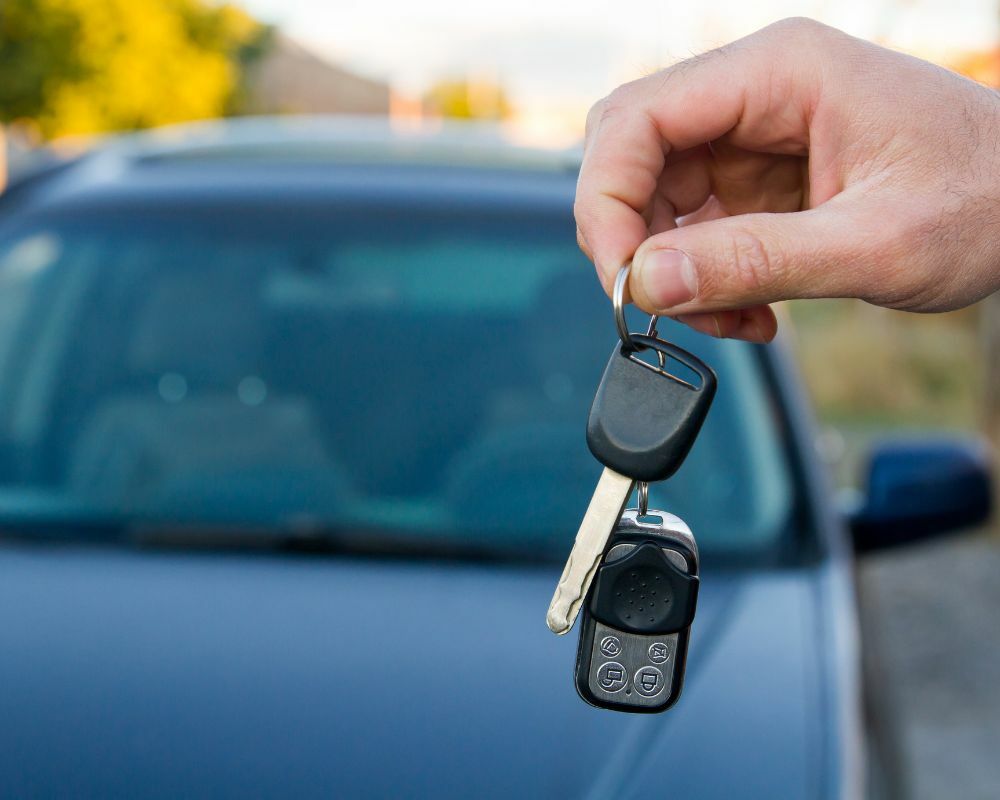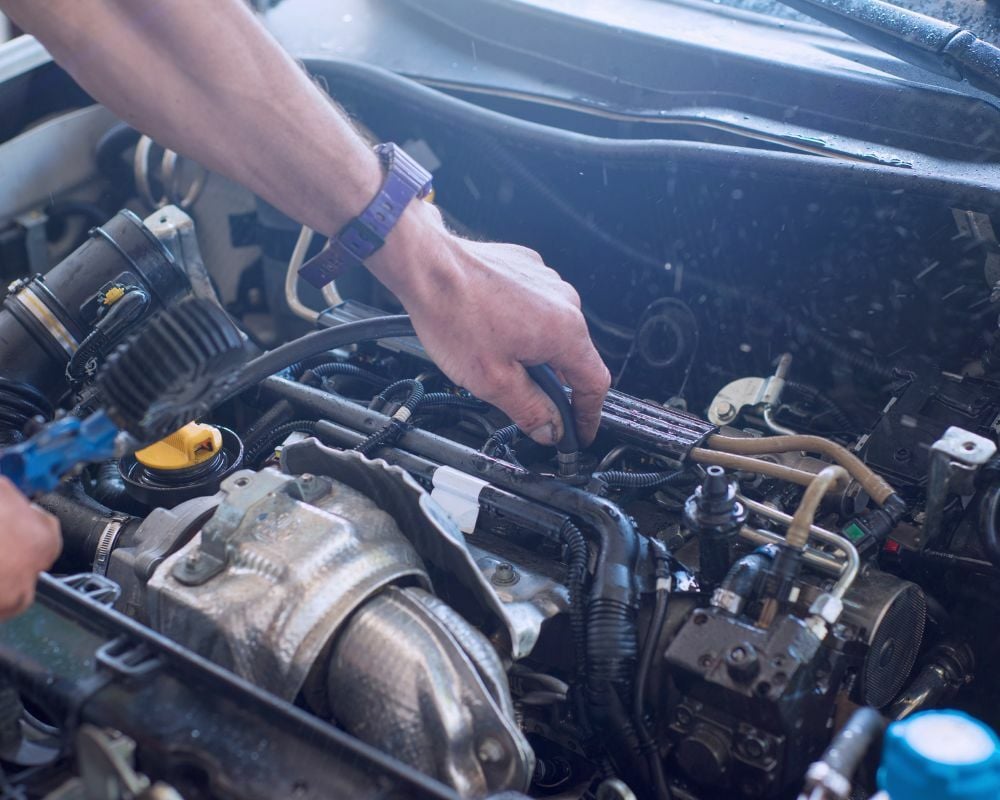Buy a car in Thailand: your ultimate guide for beginners

Buying a car in Thailand is an important decision that requires careful consideration, research, and planning. With a diverse automotive market offering a variety of brands and models, buyers have numerous options to consider. Navigating the Thai automotive market can be a rewarding experience, as long as you’re well-prepared and well-informed. Additionally, having a basic understanding of the Thai language or seeking assistance from a local friend or translator can be helpful in communicating with dealerships and completing the transaction. In this guide, we’ll explore the key steps and considerations to keep in mind when buying a car in Thailand, ensuring a smooth and successful transaction.
Top steps to buy a car in Thailand
1. Research and Select

Start by researching the available car models in the Thai market, considering factors like budget, vehicle type, brand preferences, and required features. Online resources, automotive magazines, and local dealerships can help you make an informed decision. Buying a car is a significant investment, and it’s important to make an informed decision to avoid regrets later on. Without proper research, you may end up with a car that doesn’t meet your needs or falls short of your expectations.
Secondly, there are several factors to consider when buying a car in Thailand, such as the type of car, its features, and its price. By doing your research beforehand, you can narrow down your options and choose a car brand that best fits your budget and lifestyle. Understanding the laws and regulations governing the purchase of cars in Thailand is also important. Without the proper knowledge, you may end up facing legal issues, thus make sure to understand the legal aspects to buy a car in Thailand by reading our guide article on Thailand’s laws about drink-driving, and speed limit in Thailand.
Conducting research allows you to compare different dealerships and their prices. You can also read reviews and get recommendations from other buyers, which can help you make an informed decision. On the other hand, if you are a person who loves to preserve our environment, check out our top 5 article on the EV cars to buy in Thailand.
2. Determine your budget and financing options

Establish your budget and explore financing options if needed. Compare interest rates and loan terms from various banks and financial institutions. Typically, a down payment of around 20-25% of the vehicle’s value is required for financing.
Buying a car is a major life decision, and it’s essential to determine how much you can afford to spend. By establishing your budget, you can avoid overspending and taking on unnecessary debt. Moreover, it allows you to focus your search on cars that fit your budget, making the purchasing process more manageable. Financing a car in Thailand can be challenging, especially for non-Thais. Therefore, it’s important to research financing options before you start shopping for a car. Knowing your financing options can help you identify lenders who offer competitive interest rates and loan terms that fit your financial situation. It can also help you avoid predatory lenders who may charge excessive fees or offer unfavourable terms.
Armed with your budget and financing options, you’ll be in a better position to negotiate with dealerships. By knowing how much you can afford and what financing options are available to you, you can negotiate a fair price for the car and the financing terms. You can also avoid being pressured into taking on loans or payments that are beyond your financial capacity.
Purchasing a car beyond your financial means can cause financial strain and affect your ability to meet your other financial obligations. Therefore, it’s crucial to establish your budget and stick to it to prevent financial strain in the future. It may highly interest you to read to get the best deals for car loans here if you are on a tight budget!
3. Visit dealerships and test drive

To get a firsthand experience of your preferred car, visit local dealerships and take it for a test drive. This will help you assess its performance, comfort, and suitability. Test driving a car allows you to experience the car’s features and capabilities firsthand. You can feel how it handles the road, how comfortable it is, and how it performs. This firsthand experience will help you make a better-informed decision when selecting a car to buy in Thailand.
By visiting dealerships, you can inspect the car’s condition and evaluate whether it meets your expectations. You can also ask questions about the car’s history, maintenance records, and any existing issues. This information will help you make an informed decision and avoid buying a car with hidden problems. Visiting multiple dealerships and test-driving different models allows you to compare the features, performance, and price of each car. This comparison will help you narrow down your options and choose the best car that meets your needs and budget.
Building a relationship with dealerships is important, especially when it comes to future maintenance and repairs. By visiting dealerships, you can establish a relationship with the dealership and its staff, which may be beneficial in the long run. Test driving a car and visiting dealerships also gives you an opportunity to negotiate a better deal. You can use the information gathered from your test drives and dealership visits to negotiate the price, financing terms, and other aspects of the purchase.
4. Price negotiation and deal finalizing

Once you’ve decided on a specific car, negotiate the price with the dealer. Be prepared to discuss discounts, promotions, or additional benefits like extended warranties, accessories, or free servicing. Negotiating the price of a car can help you save money. By negotiating the price, you can potentially reduce the cost of the car, and in turn, lower your monthly payments or reduce the loan amount. It is especially important to negotiate the price of a car in Thailand, as the initial price is often inflated, and negotiation is expected.
Dealerships have a lot of experience in selling cars and negotiating deals. By negotiating the price, you can level the playing field and ensure that you get a fair deal. It is important to do your research beforehand to know the average price of the car you are interested in so that you can be prepared to negotiate a fair price.
Negotiating the price is a crucial step in finalizing the deal. By agreeing on a price, you and the dealership can move forward with the purchase, and you can be confident that you are paying a fair price for the car. It is important to get the negotiated price in writing and to read through the contract before signing to ensure that there are no hidden fees or charges.
5. Paperwork and payment

When buying a car in Thailand, it is important to complete the paperwork and payment process to legally transfer ownership of the vehicle. This includes registering the car with the Department of Land Transport, obtaining the car’s registration and license plates, and transferring the ownership of the car to your name. Completing the paperwork and payment process before buying a car in Thailand can help you avoid scams and fraud. This includes ensuring that the seller has the legal right to sell the car, that the car has a clean title, and that all necessary taxes and fees have been paid.
Completing the paperwork and payment process also helps ensure the accuracy of information about the car, such as the car’s mileage, accident history, and ownership history. This information is important for future reference, especially if you decide to sell the car. If you want more additional guideline on how to properly sell your car, check out our guide article on selling your car in Thailand.
Completing the paperwork and payment process allows you to get the necessary documents, such as the car’s registration and license plates. These documents are necessary for legal driving and insurance purposes. Paperwork is a lengthy process.
Additional guides on how to properly manage your car
6. Understanding car ownership in Thailand

Owning your own car in Thailand is exciting, but it does come with its fair share of responsibilities. Figuring out the used car scene, getting the right driving licence, and adapting to the country’s tropical weather are just some of the essential aspects of owning a car in the Land of Smiles.
There are various options to choose from when it comes to buying a used car in Bangkok. However, the most important thing is to find reliable sources so you can have a hassle-free experience. When you’re exploring the used car market, be sure to consider reputable dealerships, online portals, and certified showrooms so you can make a safe and trustworthy purchase.
Buying and selling cars online has become increasingly popular in Thailand as the digital landscape evolves. You can embrace this trend by following tried-and-tested methods and prioritising secure transitions to make the process efficient and safe – check our advice on Online Buying and Selling Cars in Thailand.
Aside from buying the right car, it’s also important that you obtain the right driving license for legal compliance in Thailand. The country offers different licences, including Temporary Licences (valid for a maximum of two years) and Non-Residential Licences (valid for five years). Visit our Driving License Requirements page to familiarise yourself with the requirements and application process.
Another thing you need to keep in mind is Thailand’s diverse weather conditions, which can impact driving habits and vehicle maintenance. From torrential rains to scorching heat, adapting to the local climate is vital for a smooth driving experience. Maintaining proper tire pressure, using sunshades, and performing regular care maintenance are some of the keys to making sure your car lasts a long time in this environment.
Knowing the ins and outs of owning a car in Thailand can make your journey as a car owner both enjoyable and stress-free. Check out the articles linked here to learn more about car ownership in Thailand so you can make confident and well-informed decisions.
7. After purchase: maintenance and upkeep

So you’ve purchased your car in Thailand? Owning a car in the country involves more than just driving. You also need to understand the local regulations, find reliable repair shops, and maintain the vehicle to ensure safety on the roads.
When it’s time to service your car, it’s important to find a trustworthy and affordable auto repair shop in Thailand. If you don’t know where to go, the first thing you can do is to ask your friends, family, or colleagues for suggestions. Also, pay attention to online reviews and consider reaching out to expat communities for their trusted suggestions. Remember, the goal is to secure the perfect balance between cost and service level while prioritising your car’s safety and longevity.
After you find a reputable auto repair shop, don’t forget to establish a maintenance routine. This includes checking fluid levels, monitoring tire pressure, and examining brake pads, among other components. It’s also a good idea to invest in a reliable alarm system or steering lock for added security. Plus, always remember to park your vehicle in well-lit areas.
Quality car parts and regular car washes are also essential for keeping your vehicle in tip-top shape. You can find many reputable car parts stores in Bangkok that offer genuine replacement parts and supreme customer service. Some of the most popular establishments include Advance Auto Supply and Flintstone Autoparts. In addition to car parts, maintaining the cleanliness of your vehicle is also important, both for aesthetic purposes and to avoid damage from dirt and contaminations. Top car washes in Bangkok include JWash Car Care Sathorn and Victor Bangkok, among others – check out our article for more car washes in Bangkok.
With air quality becoming a concern in Thailand, you may want to consider minimising your car’s emissions. You can do this by regularly servicing your car, maintaining proper tire pressure, and driving at moderate speeds. By implementing these measures, you can help improve Thailand’s air quality and save on fuel costs.
8. Making the most of your car in Thailand

Driving in Thailand can pose various challenges, so it’s important to consider factors that can affect road safety. Although the streets are usually safe to drive on, you need to stay vigilant, anticipate potential hazards, and adhere to local traffic regulations for a smooth and secure journey. Night driving in Thailand brings its own set of hurdles, such as poorly lit roads and a higher chance of encountering intoxicated drivers. Therefore, always prioritise your safety by buckling up, staying alert, and refraining from speeding or driving under the influence.
For a safe driving experience in Thailand, remember to follow the essential do’s and don’ts, like keeping to the left side of the road, refraining from unnecessary honking, and approaching U-turns with caution.
Planning to do a lot of road trips in Thailand to make the most out of your car? Then be sure to prioritise reliable off-roading capabilities since these cars are more ideal for road trips. These cars may allow you to venture onto the top wild off-road trails and fully experience what the country has to offer, such as the Karen Eco Lodge – Wat Luang Kun Win Temple and Chiang Mai – Pai OHV Route.
If you wish to explore Thailand’s remote islands and coastal areas by car, then car ferry adventures provide an exciting way to do it. To select the ideal ferry service, take time to explore different operators along your preferred route, taking into account aspects such as pricing, journey duration, safety history, and vehicle limitations. Don’t forget to prioritise safety measures like applying the handbrake, leaving the car in gear (manual), and locking the doors. These measures are crucial for a memorable car ferry experience.
When you’re walking, be sure to follow essential pedestrian safety tips. You should always use footbridges, underpasses, or zebra crossings. Moreover, it’s crucial that you make eye contact with drivers and stay visible when you’re crossing the street. Child safety is another crucial concern on Thai roads, as accidents are often prevalent and potentially fatal. So, whether you’re walking or driving with kids, always take precautions and get familiar with the driving conditions in Thailand. Make sure to use secure car seats in your vehicle and choose the right child restraints based on their age and weight when you’re out walking.
It’s important for both expats and residents in Thailand to understand the nuances of car ownership and safe driving practices. By staying informed and vigilant, you can make the most of your adventures in the country while also protecting yourself and your loved ones on the road. For more detailed insights and tips to make your journey in Thailand an unforgettable experience, explore the linked articles.
9. Exploring automotive trends and innovation

Just like the rest of the world, there’s a big change happening in Thailand when it comes to owning cars. This change is being fueled by factors like sustainability, technological advancement, and a growing interest in classic and custom vehicles.
There’s a clear shift towards eco-friendly options in Thailand, so the future of automotive in the country is green. People are embracing electric and sustainable modes of transportation. This is evident with the notable increase in the popularity of electric bikes, the best of which are listed in our article on Thailand’s Top E-bikes for Sustainable Commuting. These efficient and user-friendly vehicles are becoming more attractive to people due to their affordability. Tesla’s entry into the Thai market further solidifies this shift, promising innovative electric vehicles and autonomous driving experiences.
With an expanding network of EV charging stations, seamless and environmentally friendly travel is within reach for everyone living in Thailand. Even luxury vehicles are getting on board with this movement towards sustainability, offering chic alternatives for drivers who care about the environment.
Another growing trend among Thai car enthusiasts is the classic car craze. The interest in vintage cars can be seen as an expression of nostalgia and appreciation for unique automotive aesthetics. This passion aligns with the rise of a custom car culture, where owners take great pleasure in modifying and tailoring their vehicles to suit their individual preferences. Both these trends offer a fascinating window into the evolving Thai automotive scene.
As Thailand embraces the future of transportation, it’s important to keep up with the latest innovations and changes in the industry. Augmented Reality provides an opportunity to reshape the way we experience driving by providing better visuals and information. Meanwhile, having an in-depth understanding of a car design process, as detailed in sketches to showroom, adds value to how we perceive the final products available in the market.
By staying informed about electric vehicles, vintage cars, and custom car culture, car owners and enthusiasts in Thailand can confidently navigate through the country’s vibrant automotive scene.
That’s the end of our guide article on buying a car in Thailand. Make sure to understand every aspect of it before buying a car. And remember, drive safe!
Latest Thailand News
Follow The Thaiger on Google News:


























